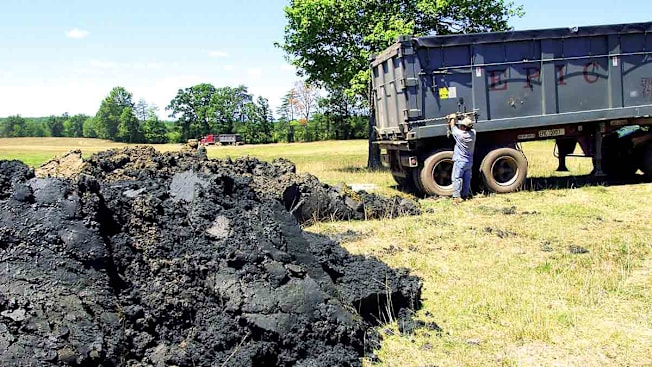“We learn more each week about the prevalence of PFAS contamination in the U.S. food and agriculture systems,” the letter reads. “Increasingly we find that the primary source of this contamination is from sewage sludge.”
In a May 2024 investigation exploring PFAS in the food supply, CR ran a small test of 50 samples of five brands of milk we bought in grocery stores around the country. We found PFOS and PFOA—the two PFAS compounds most often linked to harmful health effects—in six of the 50 samples, including some organic milk. CR food safety experts say the test results highlight shortcomings in federal regulations of these dangerous chemicals.
It was a third-generation dairy farmer in Maine, Fred Stone, who was one of the earliest to discover that his land, water, cows, and milk (not to mention his family) had been contaminated with PFAS from sludge that he had spread years earlier. As Stone told CR, “Being the one running around telling everyone the sky is falling in is not a great situation to be in.”
Unfortunately, dozens of farmers in Maine have subsequently found PFAS in their land and products. The state, which has been relatively proactive in its response by banning land application of sludge and setting limits for PFAS in milk, is far ahead of other parts of the country in its process of discovery and regulation.
“We know Maine is not alone, and we know that there is likely PFAS contamination in agriculture in every state,” says Sarah Alexander, executive director of MOFGA. “Government agencies have sanctioned and encouraged the spreading of sludge on agricultural lands, and the farmers can’t be left holding the bag.”
The EPA declined to respond to CR’s request for comment on the letter. When CR previously contacted the agency with questions about its plans for regulating sludge, the agency said it was trying to determine whether regulation of PFAS in sewage sludge “is warranted under the Clean Water Act.” The agency also said it recommends that states monitor sludge for PFAS themselves in the meantime, but few currently do.
MOFGA and other groups also plan to join a separate lawsuit that the nonprofit Public Employees for Environmental Responsibility (PEER) has filed against the EPA for the same issue. PEER announced its plan to sue the agency in February after finding high levels of PFAS in several farms in Texas and then testing the sludge that had been spread on land nearby.
"We’re finding very high levels of PFAS in biosolids; we’ve known about this problem for years now,” Kyla Bennett, PEER’s director of science policy, tells CR. “And it’s just nonsensical for the EPA to be allowing them to be spread on farmland—or on any land, really."





